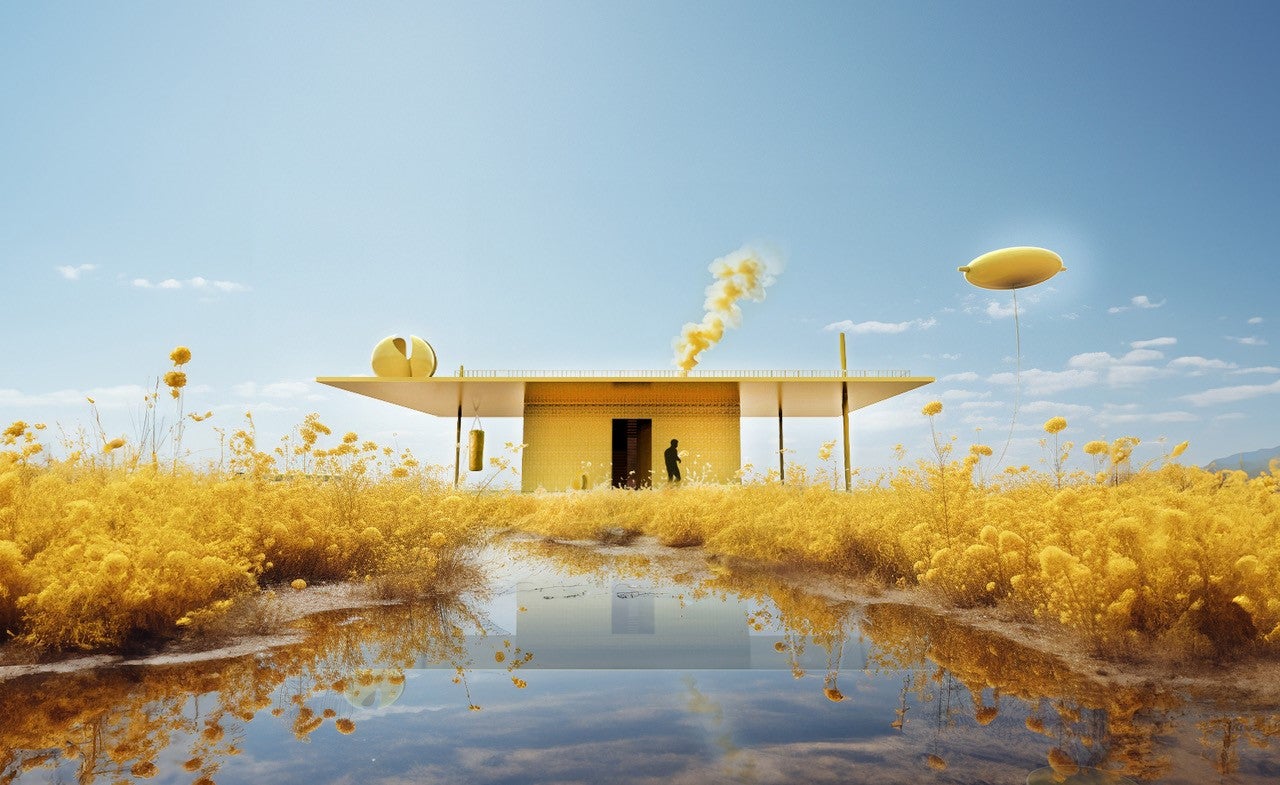Back in September, Maison&Objet encouraged design pros to “Enjoy” its pleasure-themed biannual trade fair. For its winter edition, taking place at the Villepinte exhibition center from January 18 to 22, Paris’s signature show propels that optimism all the way to paradise with “Tech Eden”—an exploration of the futuristic utopias that are possible when craftsmanship, computers and nature fuse. Coinciding with the event’s 30th anniversary, this central topic presents an opportunity for Maison&Objet to assert its uniqueness as an industry platform, affirm its commitment to innovation across all sectors of decor and celebrate what comes next.
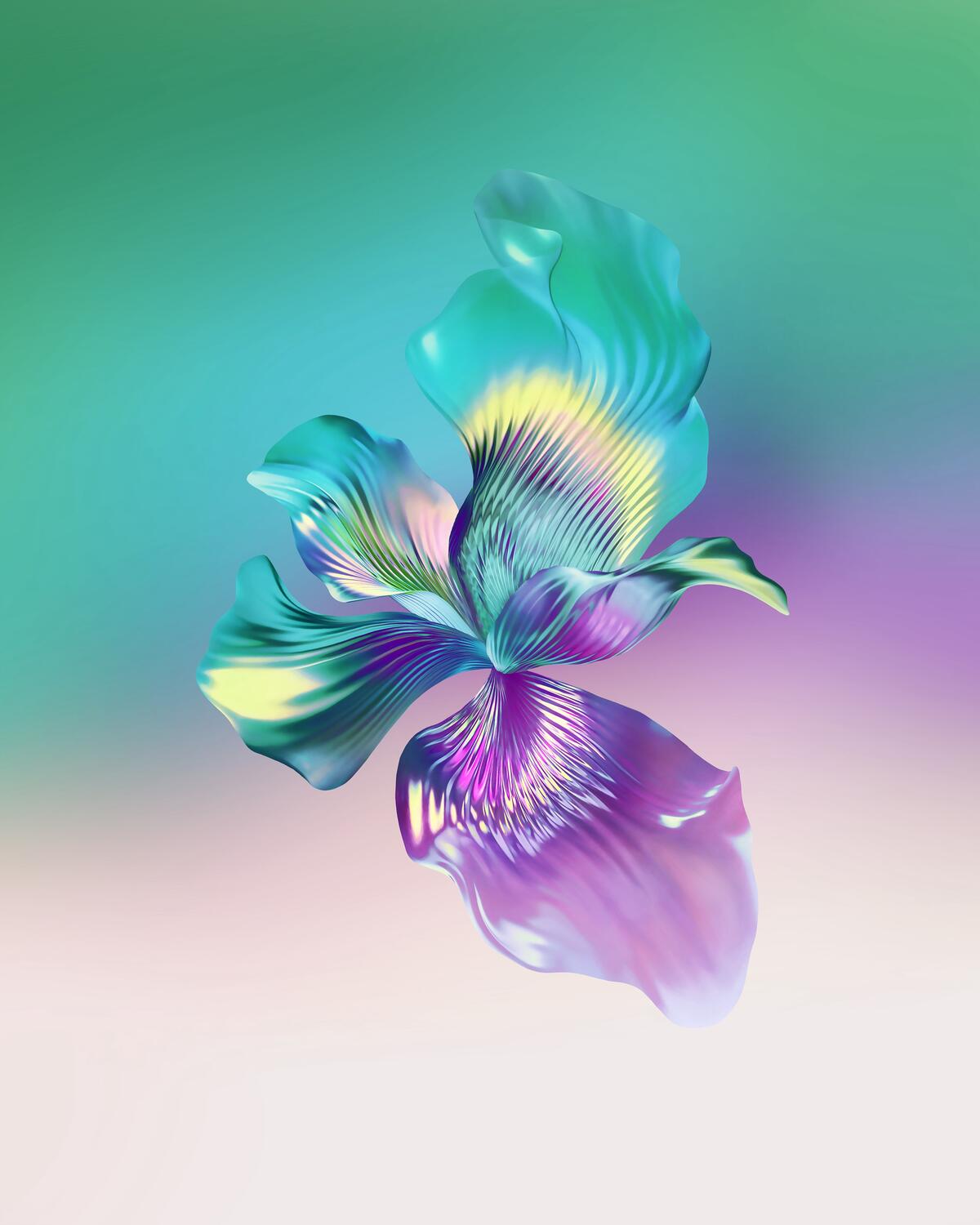
“Thirty is the cusp of middle age,” says director of marketing and communication Caroline Biros. “You feel young, but you also have some experience under your belt. You pause and ask, ‘OK, what’s important?’” Maison&Objet’s quo vadis? question arrives at a moment when two seemingly opposing viewpoints are driving the design world: One is the emphasis on sustainably sourced, artisanally made goods notable for their authenticity, materiality and craftsmanship—signifiers of the so-called “slow” lifestyle and its traditional values. The other is the hyperfast, hands-off virtual realm of augmented reality, facial recognition and “Hey, Siri?” voice commands. But in Tech Eden, Maison&Objet posits that this dichotomy is out-of-date, and designers don’t have to choose a side.
“The key visual for this season is an AI-generated, purple-and-green flower blossom,” says Biros. “It symbolizes the union of these aspects—technology and nature—and the potential for new ways to produce content and product.” This winter, Maison&Objet investigates the advancements in hospitality, retail and residential design, revealing the trends that hold the promise for a fully integrated tomorrow.
THE GREAT ESCAPE POD
In a pendulum swing from the necessary isolation of the peak pandemic years, hospitality venues have roared back to maximum capacity. Secular versions of sacred spaces, they’re where public and private meet, with all manner of people crossing paths for all different purposes. For Maison&Objet’s Hospitality Lab, trend consulting agency Peclers Paris further refines the role of these hybrid hot spots by making biophilia—our inherent affinity for nature—the organizing principle behind three future-focused escape pods.
“Covid reminded us that nature is precious, and outdoor spaces came to represent a more creative way of living in the world,” says Biros. Peclers’s hospitality design experiments yield a hotel bedroom encompassing a pop-up spa for soul-level rejuvenation; an airport lounge that morphs into a preflight gym; and a restaurant that adapts in real time to individual health needs—all via intuitive tech. Virtual tours and AR headsets work hand in gaming glove with aromatherapy and circadian rhythms, sci-fi and self-care intertwining to stimulate the six senses.
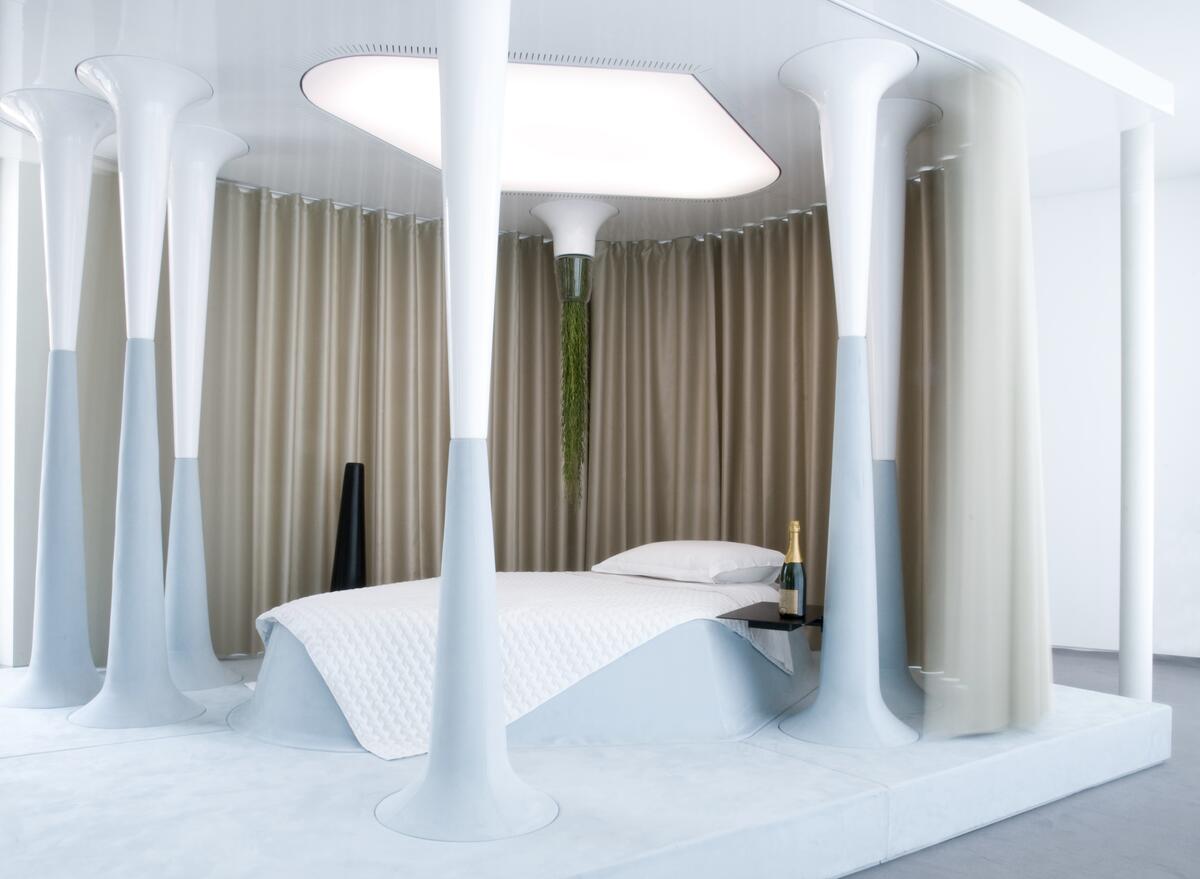
“The objective of a laboratory is to test hypotheses, but Maison&Objet’s Hospitality Lab is not just about a utopian sociological vision—it’s about encouraging business,” says Biros. “Between inflation and e-commerce, traditional retail is challenged right now. But hospitality is booming. It’s the category where strategically positioned brands will see real growth.”
WHAT’S IN STORE
Serving as a think tank for what to source and how to sell it, this winter’s “What’s New? In Retail” presents a curation of the latest products coming to market, supported by educational programming and merchandising tips. The sector’s art director, François Delclaux, in collaboration with global design agency BETC, spotlights three trending aesthetics for today’s stores: sustainable minimalism, brutalism built from recycled materials, and organic fluidity. Rendered in muted tones, enveloping fabrics and biomorphic forms, the tech in these experiential activations is subtly embedded.
“Coaching sessions will demonstrate ways to maximize the impact of each style, showing how a store is also a space to meet, maybe to attend a craft workshop or a workout class,” says Biros. Nicolas Rebet of Retailoscope, Tony Piloseno of Tonester Paints and Christophe Anjolras of Volcan Design are some of the experts on the roster, speaking about such topics as seeding nature into a layout, translating a brick-and-mortar mindset to TikTok and improving the on-site shopping experience with QR codes. In a continuation of the category Maison&Objet launched in the fall, the January show will also feature several interactive displays specific to well-being and beauty. “It’s a developing market, and our workshops will help retailers tap into the trends, messaging and brands behind it,” says Biros.
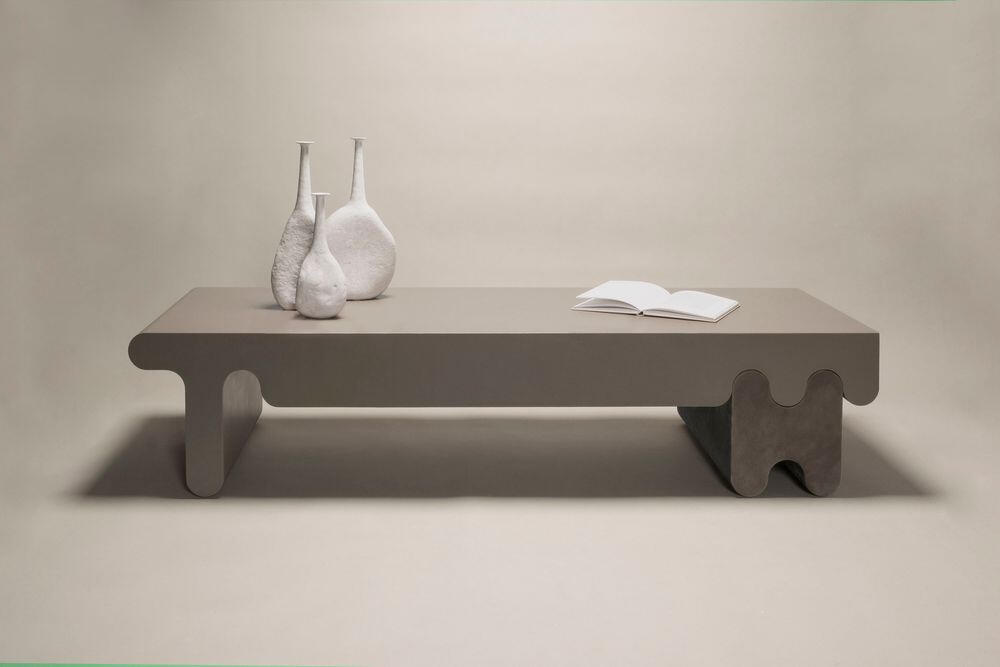
RESIDENTIAL REFUGES
Hospitality may be thriving, retail may be in transition, but at the end of the day, everyone goes home. (These days, some rarely leave it.) Now that connectivity has made the old boundaries between home and office, gym, supermarket—everywhere else, basically—more porous, interior designers are confronted with a contradictory goal: Meet the multifunctional needs of a hardworking family residence while simultaneously creating a comforting, cocoonlike refuge from all the chaos. In her “What’s New? In Decor” immersive installation, designer and trend forecaster Elizabeth Leriche manifests solutions using modular furnishings that fulfill more than one purpose. “She takes a very decorative, scenographic approach to the Tech Eden theme,” says Biros.
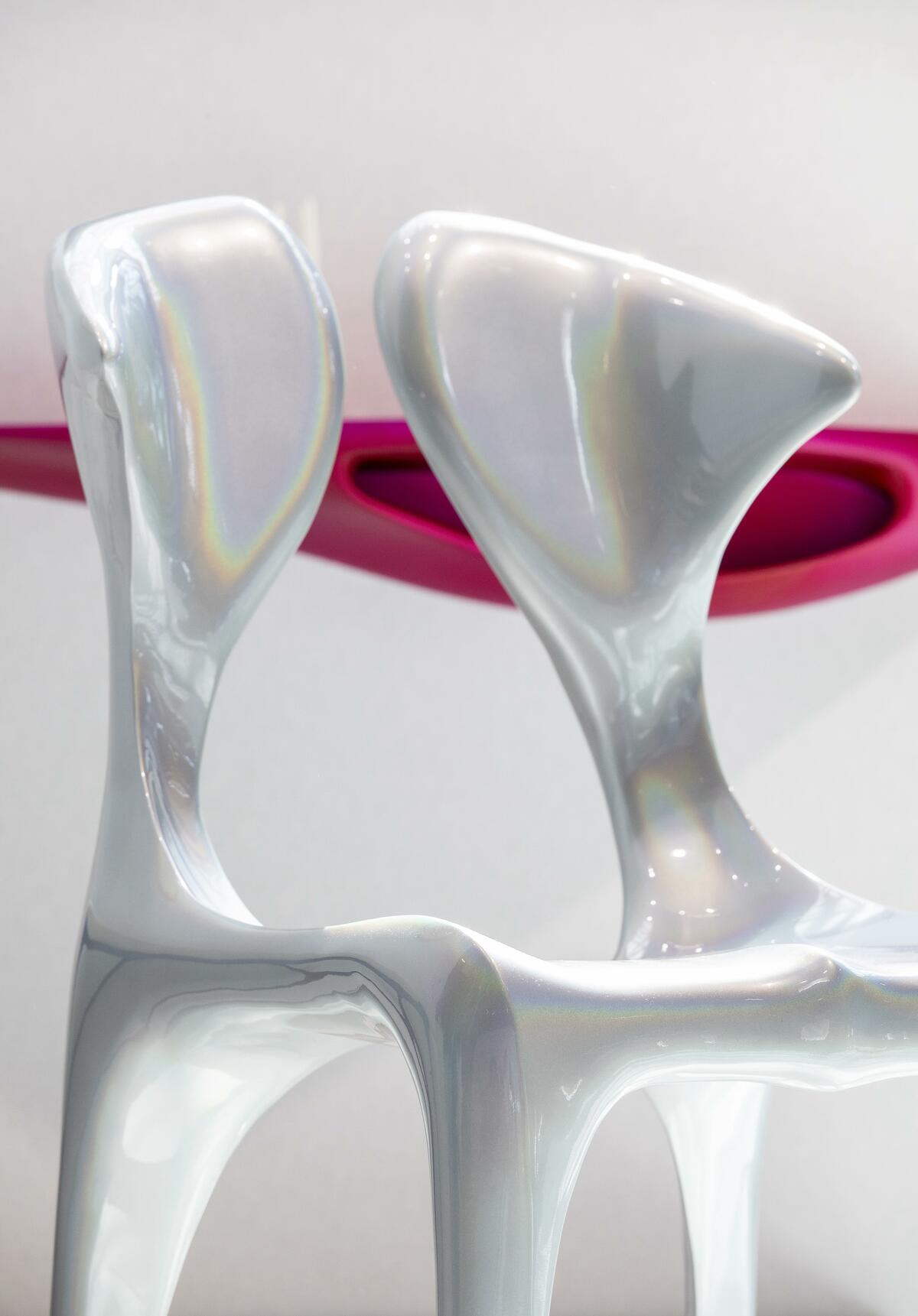
Famous in France for his sinuous steel Olympic torch design for the upcoming Summer Games, Mathieu Lehanneur, Maison&Objet’s 2024 Designer of the Year, also contributes to the home decor category with “Outonomy,” a thought-provoking installation that explores the luxury of outdoor living in an age of climate change. “He thinks about design like a scientist, asking: ‘What do we need to change? How do we need to adapt?’” says Biros. Cast in a saturated, monochromatic yellow that reflects what the designer calls the “oxymoron” of the Tech Eden theme (is it cheerfully sunny—or menacingly sulfuric?), Lehanneur’s single-level structure appears to stand as an oasis in the middle of nowhere, surrounded by water that reflects blue skies above. The concept echoes the solitary, meditative igloo, yurt or cabin in the woods, but with a twist: Instead of offering a retreat from technology for a temporary, romanticized return to a more rustic way of life, it bypasses such nostalgia and assimilates innovation, centering nature as the ultimate “source code” in an optimized, self-contained ecosystem. It’s Walden Pond with Wi-Fi.
FUTURE PERFECT
Considering AI’s near-instant encroachment into all corners of commerce, it’s understandable that creative professionals would be concerned about how technology might replace them. Maison&Objet takes that fear seriously and faces it with a smile. As Biros reasons, even the most hands-on craftsperson undoubtedly depends on innovation to enhance their business: They’re influenced by the images they see and accounts they follow on social media; they sell their products and manage their operations through online platforms; and to be competitive, their creations need to work in tandem with smart home systems. “An artisan who constructs lamps according to centuries-old practices still does so within the context of modernity,” she says. No one could preschedule a dimmer via smartphone app during the Gilded Age, but today that’s de rigueur.
“It’s a holistic way of seeing design,” Biros continues. “The Tech Eden theme isn’t dictated by Maison&Objet; it comes from the community around us.” Embracing tech’s inevitability, January’s event aims to inspire designers as they envision future wonderlands that make the most of it. “Whether they’re against the machine or for it, our purpose is to bring people together.”
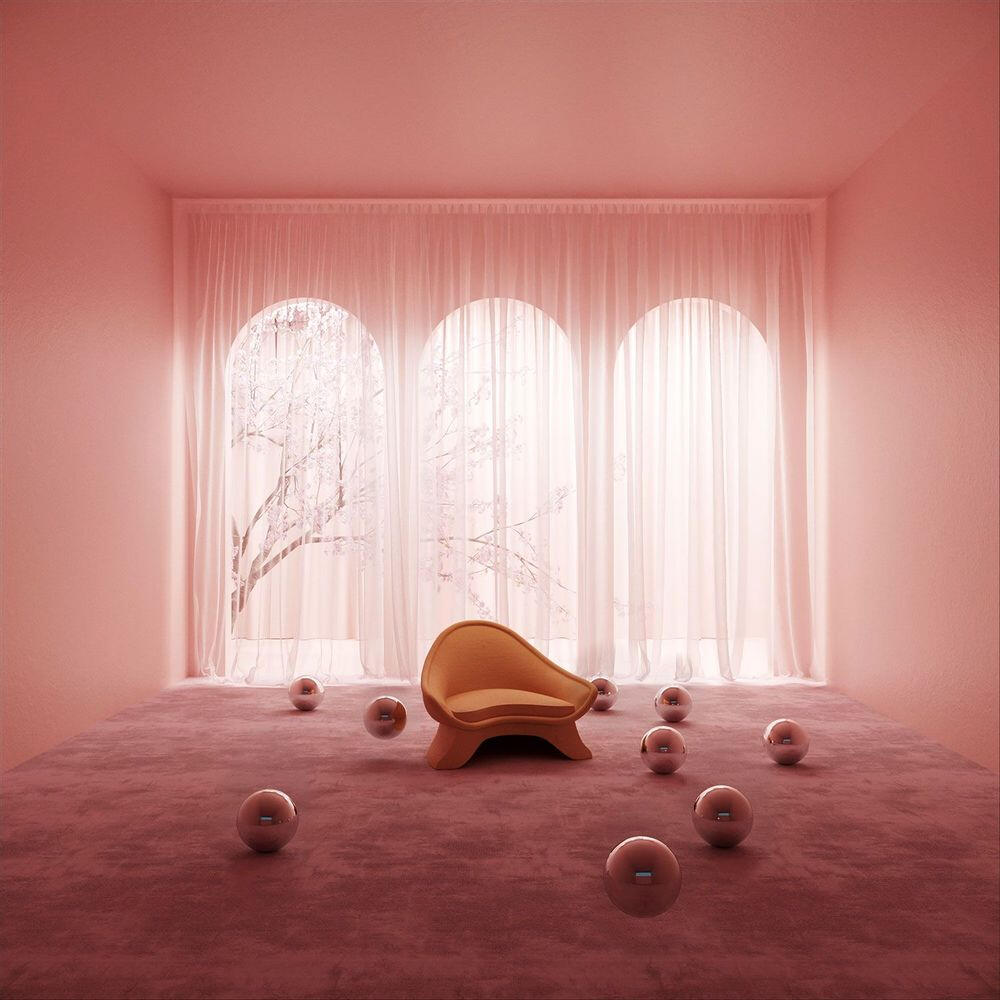
This story is a paid promotion and was created in partnership with Maison&Objet.
Homepage image: Rendered in arresting yellow, French designer Mathieu Lehanneur’s “Outonomy” installation syncs the concept of the solitary cabin with the convenience of tomorrow’s technology | Courtesy of Maison&Objet
















